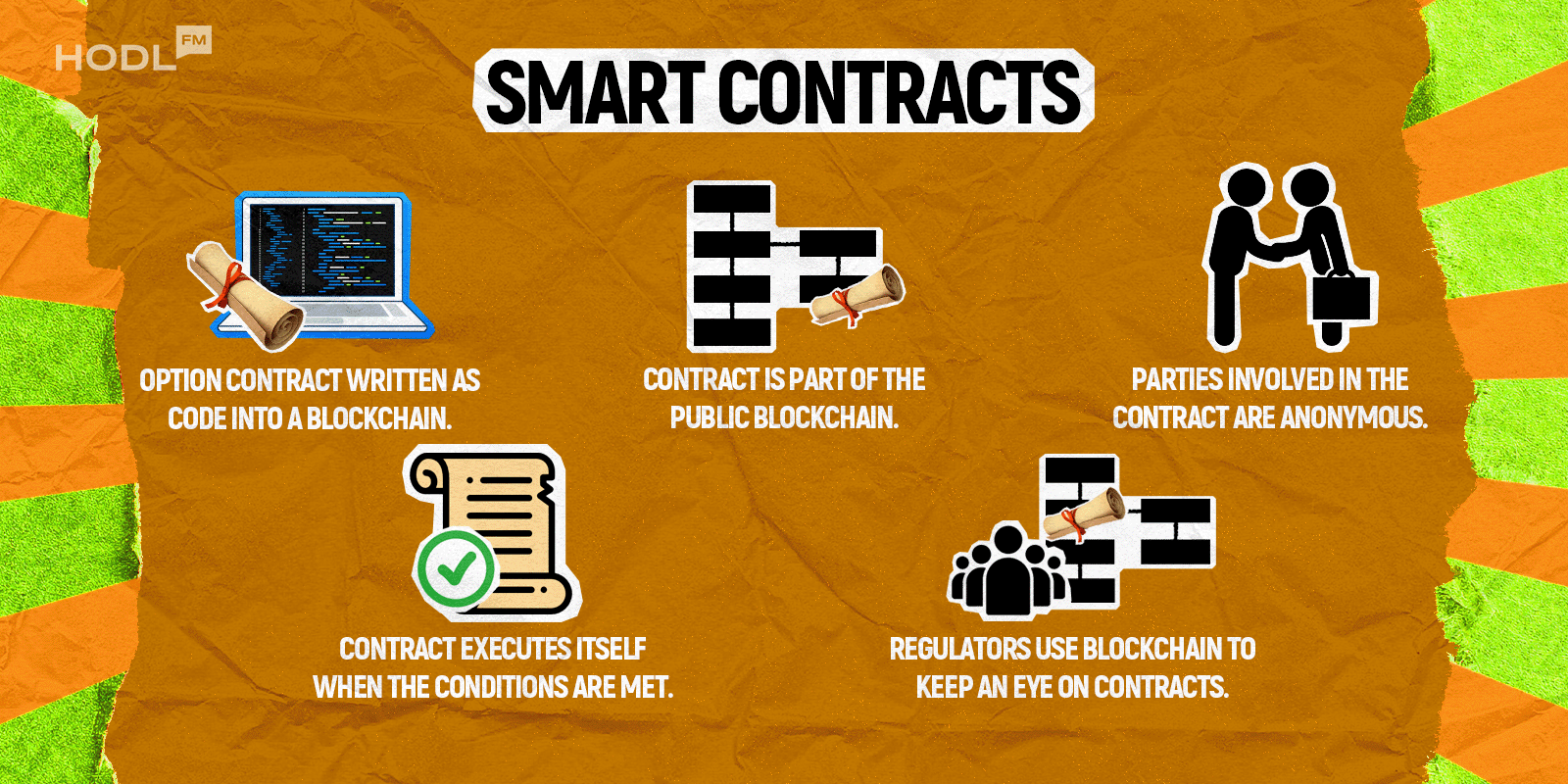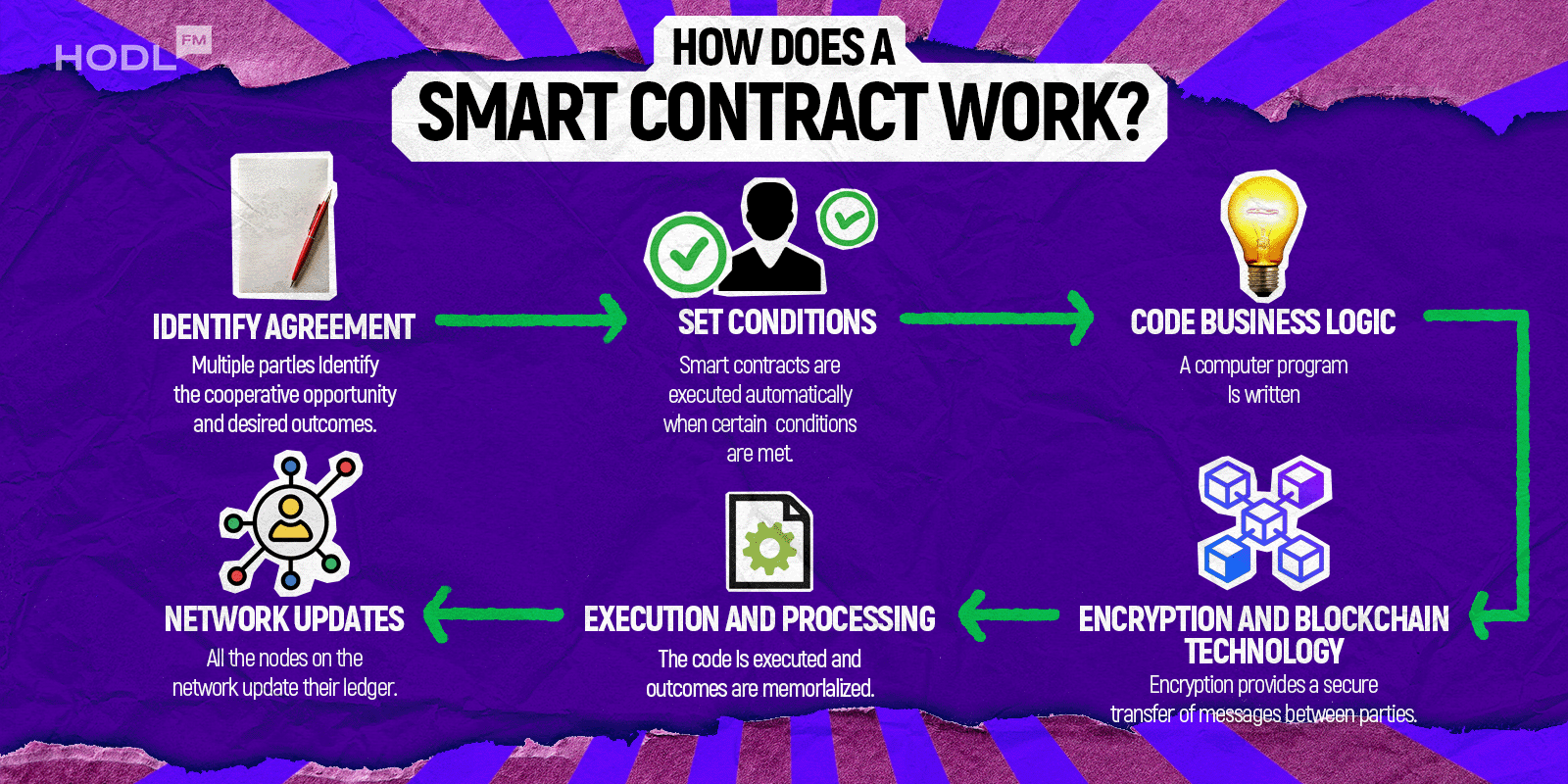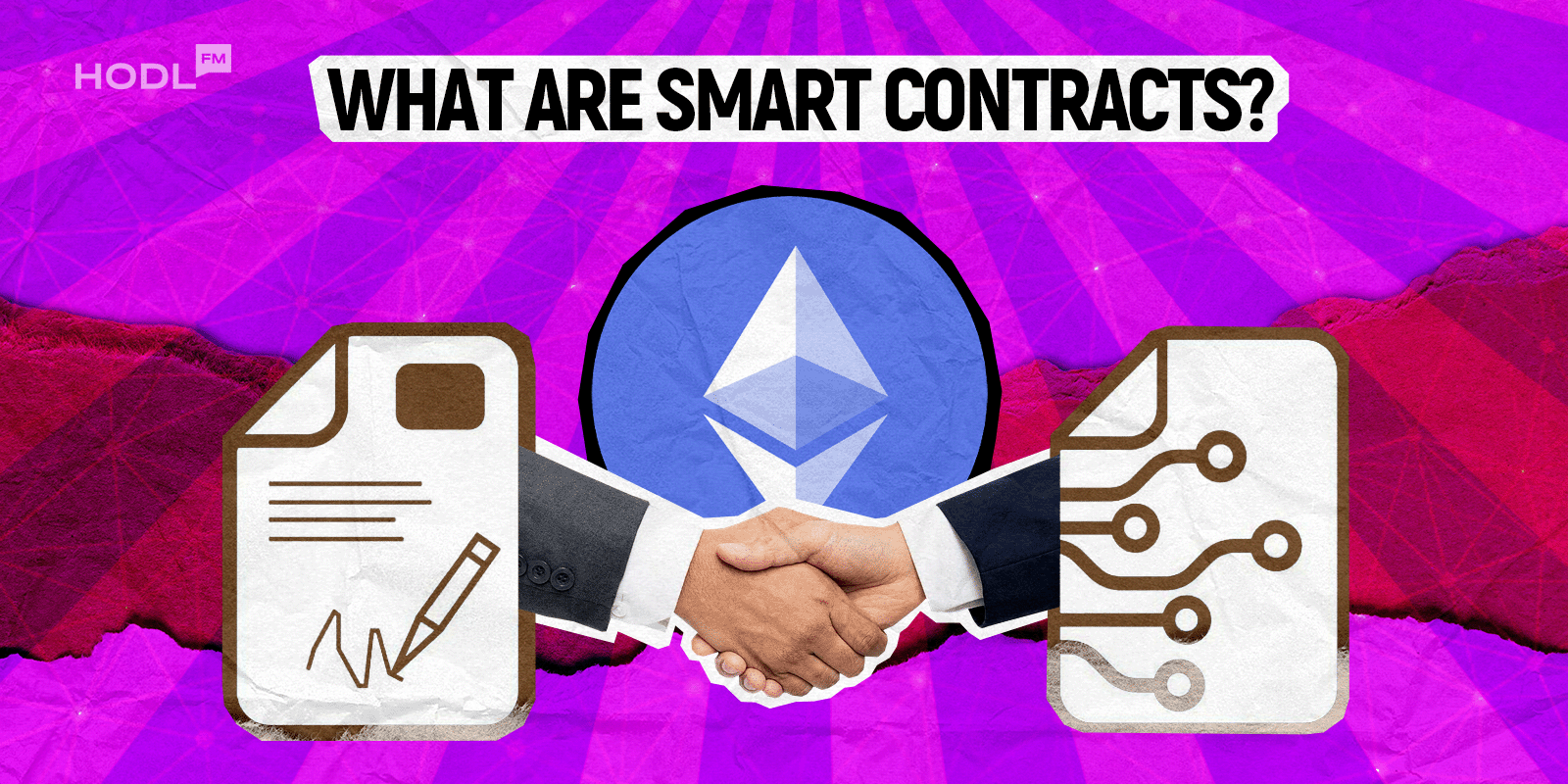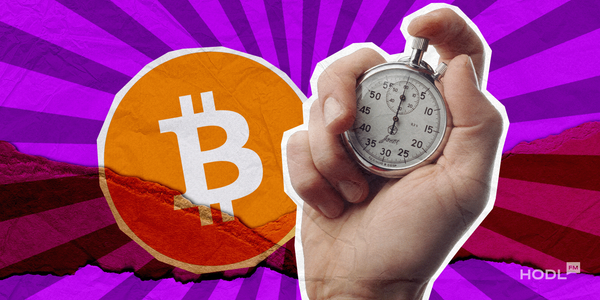Imagine a world where you can make a deal without ever having to shake hands, sign papers, or trust a middleman. Welcome to the universe of smart contracts on Ethereum! These nifty little programs are like digital vending machines for agreements—pop in the right inputs, and out comes the result, no questions asked.
Key Takeaways
- Smart Contracts 101: Think of them as self-executing agreements on the Ethereum blockchain. They automatically kick into action when certain conditions are met, cutting out the need for any intermediaries. Lawyers, take a back seat!
- The Magic Ingredients: These contracts are automated, immutable (unchangeable, like your favorite childhood memory), transparent, decentralized, and secure. They spring into action the moment conditions are fulfilled.
- A Blast from the Past: The idea was cooked up by Nick Szabo in 1994. Fast forward to 2015, and Ethereum took this concept to the next level, making it the go-to platform for programmable smart contracts.
- Languages of the Future: Written in languages like Solidity, these contracts are deployed across Ethereum’s vast network of nodes, ensuring everyone’s on the same page without a central authority bossing them around.
Industries Already on the Bandwagon
From DeFi and supply chains to insurance, real estate, gaming, and NFTs, smart contracts are the new rockstars, shaking up industries left and right.
What Exactly Are Smart Contracts?
Picture a vending machine that runs on code. You insert a coin (or, in this case, some cryptocurrency), and if everything checks out, it spits out your snack. No human intervention, no fuss. Smart contracts are similar—they’re programs on the Ethereum blockchain that self-enforce agreements when predefined conditions are met. It's like having a digital referee that always plays fair.
Smart contracts are digital contracts stored on a blockchain that are automatically executed when predetermined terms and conditions are met
Key Traits of Smart Contracts:
- Automated: Once set up, they don’t need a babysitter.
- Immutable: Once deployed, they’re set in stone.
- Transparent: Everyone can peek at the code and rules.
- Decentralized: Verified by a network of nodes, not a single entity.
- Secure: Running on blockchain makes them tough nuts to crack.
- Instant: They act as soon as the conditions are right.
Did Ethereum Invent Smart Contracts?
Not exactly! Nick Szabo, the brainy cryptographer, dreamt them up in 1994. But it was Ethereum, launched by Vitalik Buterin in 2015, that turned this dream into reality. Ethereum was built to handle complex smart contracts, making Szabo’s vision a practical tool rather than just a cool idea.
Fun fact: Some folks speculate that Szabo could be the mysterious Satoshi Nakamoto, the creator of Bitcoin. He’s denied it, but hey, we love a good mystery!

How Do Smart Contracts Work?
Smart contracts are like the digital equivalent of a reliable friend who always keeps their word. They operate using simple "if/when...then..." statements coded into a blockchain. When the stars align—or rather, when conditions are met and verified—a network of computers springs into action.
The Magic Behind the Curtain
When predetermined conditions are satisfied, smart contracts execute actions such as releasing funds, registering vehicles, sending notifications, or issuing tickets. Once the transaction is complete, the blockchain updates, sealing the deal in digital stone. This means no take-backs and only those with permission can peek at the results.
Crafting the Perfect Smart Contract
Smart contracts can have as many stipulations as necessary to ensure everyone’s happy with the outcome. Participants must nail down how transactions and data are represented on the blockchain, agree on the "if/when...then..." rules, consider all possible exceptions, and set up a framework for resolving any disputes.
From Code to Contract
Once the terms are set, a developer can program the smart contract. But fear not! For those less tech-savvy, many organizations now offer templates, web interfaces, and online tools to make structuring smart contracts as easy as pie.
How Do Smart Contracts Work on Ethereum?
Imagine Ethereum as a colossal, decentralized computer powered by thousands of nodes worldwide. Each node holds a full copy of the blockchain and keeps tabs on every transaction. This decentralization means no single person or entity controls the contract—it’s all about the code.
The Two-Step Smart Contract Process:
- Creation: Developers write the code (using languages like Solidity), defining what the contract should do. They pay a bit of ETH (gas fee) to deploy it on the network.
- Execution: Users interact with the contract by sending transactions. Sticking with our vending machine analogy, a smart contract can:
- Know the price of each item.
- Check if the payment is adequate.
- Dispense the item automatically.
- Return change if overpaid.
- Stop sales if stock runs out.
So, there you have it! Smart contracts are the digital age’s answer to hassle-free agreements, and Ethereum is the stage where they shine. Whether you're a tech enthusiast or just someone who appreciates a good futuristic twist, smart contracts are worth keeping an eye on.

Benefits of Smart Contracts
Downfalls of Smart Contracts
How Are Smart Contracts Shaking Things Up?
Smart contracts are the unsung heroes of automation, quietly revolutionizing industries by taking on complex transactions with the grace of a ballet dancer and the precision of a Swiss watch. From DeFi to real estate, these digital dynamos are everywhere!
- DeFi: Banking Without the Bankers
In the world of DeFi, smart contracts are the backbone of lending platforms like Aave. Here, users can borrow and lend cryptocurrencies without needing a banker’s approval. Interest rates and collateral? All handled by code. It’s like having a financial advisor who never sleeps!
- Supply Chain Management: From Farm to Fork
Companies like Walmart are using smart contracts to track food products on their journey from farm to store. Each step is verified automatically, and provenance data is recorded faster than you can say "blockchain." It’s like having a GPS for your groceries!
- Insurance: Claims Without the Clutter
Insurance companies are jumping on the smart contract bandwagon to process claims automatically. Whether it's flight delays or natural disasters, claims are handled with minimal paperwork and lightning-fast processing times. Goodbye, red tape!
- Real Estate: Own a Slice of the Pie
Real estate platforms are using smart contracts to enable fractional property ownership. Now, you can buy and trade tokens that represent partial ownership of properties. It’s like owning a slice of a skyscraper without the hefty price tag!
- Gaming and NFTs: Digital Collectibles with a Twist
In the gaming world, smart contracts manage the creation and trading of unique digital assets like NFTs. They ensure authenticity and scarcity, so your digital pet dragon remains one-of-a-kind. It’s the future of collectibles, minus the dust!
- Governance: Voting with a Blockchain Backbone
Blockchain governance is exploring smart contracts to create tamper-proof election processes. Votes are independently verified, ensuring transparency without compromising voter anonymity. Finally, a voting system that’s as secure as a vault!
Use Case Spotlight: Real-World Assets (RWAs) and Smart Contracts
Take Centrifuge, a platform that’s tokenizing RWAs, or Securitize, which has turned venture capital funds into Ethereum-based tokens. They’ve transformed millions of dollars in traditional assets into blockchain tokens, making trading as easy as pie.
The Future’s So Bright, It’s Blockchain!
Smart contracts have turned Ethereum from a mere cryptocurrency platform into a programmable powerhouse. They’re reshaping industries with trustless, automated agreements that are as versatile as they are secure.
But let’s not forget, every rose has its thorn. Challenges like immutability and governance complexities keep developers on their toes. Yet, innovation marches on, enhancing flexibility while keeping security and decentralization at the forefront.
Smart contracts on Ethereum will unlock new possibilities, transforming how businesses and individuals interact. Understanding their role is key to embracing the transformative power of blockchain technology. So, buckle up and enjoy the ride into the future!
What is a smart contract?
A smart contract is a self-executing program stored on a blockchain that automatically enforces and executes agreements when predefined conditions are met, eliminating the need for intermediaries.
How do smart contracts work?
Smart contracts operate using "if/when...then..." logic coded into the blockchain. When conditions are met, the network of computers executes the specified actions, updating the blockchain with the results.
What are the benefits of using smart contracts?
Smart contracts offer speed, efficiency, accuracy, trust, transparency, security, and cost savings by automating transactions and eliminating the need for third-party intermediaries.
What are the potential drawbacks of smart contracts?
Some challenges include their permanence (immutability), reliance on accurate programming, and the possibility of coding loopholes that can be exploited.
Which industries use smart contracts?
Smart contracts are used in various industries, including decentralized finance (DeFi), supply chain management, insurance, real estate, gaming, and digital collectibles (NFTs).
Can smart contracts be modified once deployed?
No, smart contracts are immutable and cannot be changed once they are deployed on the blockchain. This ensures security but also requires careful coding to avoid errors.
What programming languages are used for smart contracts?
Smart contracts are often written in languages like Solidity, especially on the Ethereum blockchain. Other blockchains may support different languages.
Are smart contracts legally binding?
The legal status of smart contracts varies by jurisdiction. In some areas, they are recognized as legally binding, while in others, their enforceability may depend on additional legal frameworks.
How secure are smart contracts?
While blockchain technology provides a high level of security, the security of a smart contract also depends on the quality of its code. Poorly written contracts can be vulnerable to exploits.
How do I create a smart contract?
Creating a smart contract typically involves defining the terms and logic in code, which is then deployed to a blockchain. Many platforms offer tools and templates to simplify this process.

Disclaimer: All materials on this site are for informational purposes only. None of the material should be interpreted as investment advice. Please note that despite the nature of much of the material created and hosted on this website, HODL FM is not a financial reference resource and the opinions of authors and other contributors are their own and should not be taken as financial advice. If you require advice of this sort, HODL FM strongly recommends contacting a qualified industry professional.





